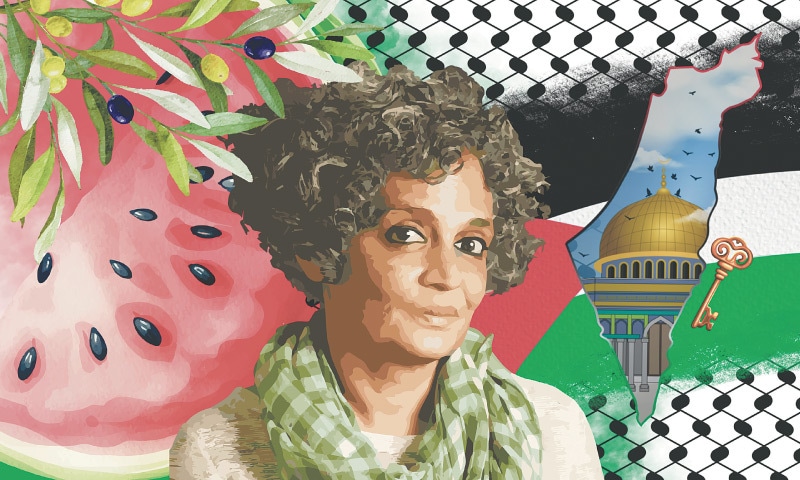Alaa Abd El-Fattah, a writer of courage and fellow awardee, my greetings. We sought divine intervention that you would be delivered in September, yet the Egyptian government concluded that you were too lovely an essayist and too perilous a scholar to be liberated at this point. However, you are here with us in this room. You are the main individual here. From jail you expressed, “[M]y words lost any power but they kept on spilling out of me. I actually had a voice, regardless of whether just a modest bunch would tune in.” Alaa, we’re listening. Closely.
Also, my beloved Naomi Klein, who is a friend to both Alaa and me. I appreciate your presence tonight. It means everything to me.
Good tidings to every one of you accumulated here, as well with regards to the people who are undetectable maybe to this brilliant crowd, yet as apparent to me as any other person here. I’m referring to lawyers, academics, students, and journalists—Umar Khalid, Gulfisha Fatima, Khalid Saifi, Sharjeel Imam, Rona Wilson, Surendra Gadling, and Mahesh Raut—who are currently imprisoned in India. I am speaking to you, my friend Khurram Parvaiz, one of the most remarkable people I know. You have been in prison for three years. I am also speaking to you, Irfan Mehraj, and to the thousands of people whose lives have been devastated who are incarcerated throughout the country and in Kashmir.
The Pinter Prize is given to a writer who has sought to define “the real truth of our lives and our societies” through “unflinching, unswerving, fierce intellectual determination,” according to Ruth Borthwick, chair of English PEN and a member of the Pinter panel. That is a line from Harold Pinter’s acceptance speech for the Nobel Prize.
Arundhati Roy, a writer and activist, has been given the PEN Pinter Prize in 2024. English PEN established this annual award in honor of the playwright Harold Pinter. Roy made the announcement shortly after she was chosen for the prize that she would be donating her portion of the money to the Palestinian Children’s Relief Fund. She designated British-Egyptian writer and activist Alaa Abd el-Fattah as a “Writer of Courage” with whom she would confer her honor. Coming up next is her acknowledgment discourse for the award, followed through on the night of October 10 at the English Library…
The word ‘unfazed’ made me stop briefly, in light of the fact that I consider myself somebody who is forever wincing.
I might want to harp a little on the subject of ‘jumping’ and ‘determined’, which might be best shown by Harold Pinter himself:
I attended a meeting in the late 1980s at the US embassy in London.
“The Congress of the United States was about to decide whether to provide the Contras with additional funding for their campaign against Nicaragua. I was a member of a delegation that spoke on Nicaragua’s behalf; however, Father John Metcalf was the most important member of the delegation. Raymond Seitz was in charge of the US body and served as the ambassador’s second in command. Father Metcalf said: ‘ Sir, I’m responsible for a ward in the north of Nicaragua. My parishioners fabricated a school, a wellbeing place, a social community. Peace has ruled our lives. A couple of months prior, a Contra force went after the ward. They obliterated everything: the cultural center, the health center, and the school. They assaulted medical attendants and educators, butchered specialists, in the most fierce way. They acted like savages. Please demand that the United States government stop supporting this appalling act of terrorism.



